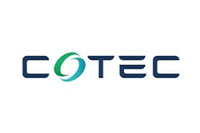US to Sell Rare Earths to China Under Trade Deal
China will increase imports of scandium and yttrium from the US over two years — though the US is not currently producing those elements.
China has agreed to buy two rare earth elements from the US as part of an initial phase one trade deal signed by the two countries on Wednesday (January 15).
Specified under “increases in US exports to China over two years,” the rare earth elements scandium and yttrium are listed among the commodities and manufactured goods that the People’s Republic is obliged to increase its purchases of under the agreement.
As expected, there was plenty of pomp and circumstance around the signing of the agreement, with US President Donald Trump saying that it is “one of the greatest trade deals ever made!”
The deal is good for both countries, Trump said on Twitter (NASDAQ:TWTR).
“250 billion dollars will be coming back to our country, and we are now in a great position for a phase two (trade agreement negotiation) start.”
Despite the agreement, as many outlets have noted, the US does not currently produce any rare earth elements — let alone the elements of scandium and yttrium.
Speaking with the Investing News Network (INN), David Anonychuk, managing director of M.Plan International, said the news that scandium and yttrium are listed among goods that will see increased exports to China will “probably raise some eyebrows” and make investors rethink positioning in rare earths in general.
“Whether it contributes to something in reality, in actual trade flow, is a different matter,” he said, adding that today the largest consumers of scandium are US based, but that is likely to change.
“If you think about the future and where scandium is expected to grow the most, it’s going to be in the transportation sector. Transportation is the key, and if we think of electric vehicles and where it’s going … it’s predominantly China and Asia based,” he said, meaning that in the future, China will be an importer rather than an exporter.
“Ignoring the short-term news, just thinking about the future, China really is the story of where things like scandium would benefit from on an import nature … the dynamic will shift.
“Maybe this story is stepping out a bit and seeing the bigger picture, as to the hidden drivers, even though in a practical sense no one (in the US) is going to rush out to supply China.”
Today, rare earth elements are commonly used to manufacture magnets that are used in guidance systems that are, in turn, used by the US military — making America’s reliance on China for the import of rare earths a major issue during the trade war that Washington sought to correct.
As readers will know, China has almost complete control of the rare earths supply chain, a fact that has been motivating western nations and companies to mull over the vulnerabilities — and the opportunities — in the market.
The reality of the situation is that it is a surprising change for the US to suddenly be wanting to export rare earths to China after a period of wanting to lock down supplies. But as Anonychuk noted, negotiations like these are opaque.
“Whether there was pressure somewhere, whether there was pressure to support industries — you never know how these negotiations take place,” he said.
“There’s reasons in the practical sense why (scandium and yttrium are listed in the agreement), and I’m sure there’s all sorts of negotiations and reasons people want things. But it was interesting that it was only last summer that scandium was on the list (to be protected), and now they’re saying, ‘Hey, we want China to buy it.'”
Looking back on the last few months and years, multiple jurisdictions and companies have been jockeying to fill the void that exists globally outside of China’s rare earths output, with companies in Canada, the US and Australia racing to make their case to the markets and governments that their projects can meet demands to diversify the supply chain.
Several companies within the US have been working to develop projects, such as Texas Mineral Resources (OTCQB:TMRC) with its Round Top project in Texas, and Ucore Rare Metals (TSXV:UCU,OTCQX:UURAF) with its Bokan Mountain heavy rare earths project in Alaska — both companies put their hands up for US Army grants to fund rare earths processing in the US.
Both projects, which feature yttrium, are still in the development stages.
Don’t forget to follow us @INN_Resource for real-time updates!
Securities Disclosure: I, Scott Tibballs, hold no direct investment interest in any company mentioned in this article.
Editorial Disclosure: The Investing News Network does not guarantee the accuracy or thoroughness of the information reported in the interviews it conducts. The opinions expressed in these interviews do not reflect the opinions of the Investing News Network and do not constitute investment advice. All readers are encouraged to perform their own due diligence.


